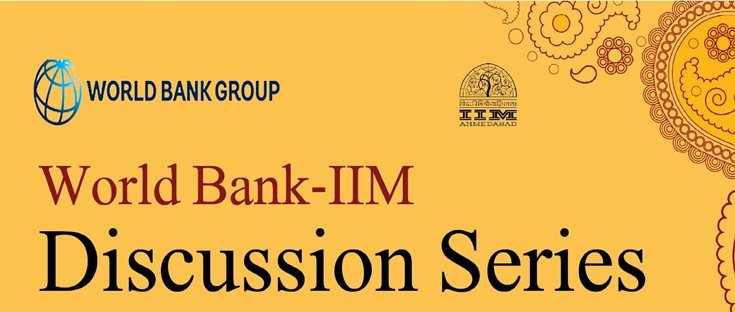As part of our efforts to reach out to a broad range of people on development issues, we conduct a series of interactions with academic and research institutes. Our first discussion series, with the Indian Institute of Management at Ahmedabad, gives us an opportunity to exchange views with faculty and students on India’s key development challenges, and enables us to learn from each other.
The first session in the series was kicked off in November 2013 by Onno Ruhl, the World Bank's Country Director in India. Ruhl briefly walked the audience through the history of the World Bank Group and highlighted the special place India holds for the global institution. India was one of the five first countries to receive a World Bank loan – in 1948, for the Indian Railways – and the Bank was one of the single largest sources of development finance for the country in the early years after independence.
This was followed by a talk by Rinku Murgai, the World Bank’s lead poverty specialist, in Februrary 2014. Murgai reviewed recent trends of India's progress against poverty and discussed debates on whether the poverty line is too low, and if the sharp decline in the poverty rate is plausible. She examined the contribution of different factors (e.g., growth versus redistribution, and job creation versus run-up in rural wages) underlying the decline. A number of puzzles related to measurement that emerge from a preliminary assessment of the data were also highlighted.
In July 2014, Dr Madhur Gautam, the World Bank’s lead agricultural economist in India, spoke about the recent developments in Indian agriculture and the challenges of accelerating agricultural productivity. The discussions centered around major policy issues confronting the sector such as those concerning food security, changing consumption patterns, the impact of changing rainfall and weather patterns, the role of agribusiness in low income states, and the scale and importance of subsidies.
In August 2014, Ashish Khanna, lead energy specialist, spoke on ‘More Power to India: The Challenge of Building Effective Institutions in Distribution’. Khanna’s presentation led to a stimulating conversation on the role of the central government in implementing reforms at the state level, especially in the sphere of rural and urban electricity distribution. After the interaction Khanna said: “There is nothing more exciting than to be amongst a group of enthusiastic young students with an inquisitive mind. Although the students were not energy sector experts, their appreciation of what would work and what wouldn’t at the ground level was remarkably sharp. I left more confident of young India and its abilities.”

